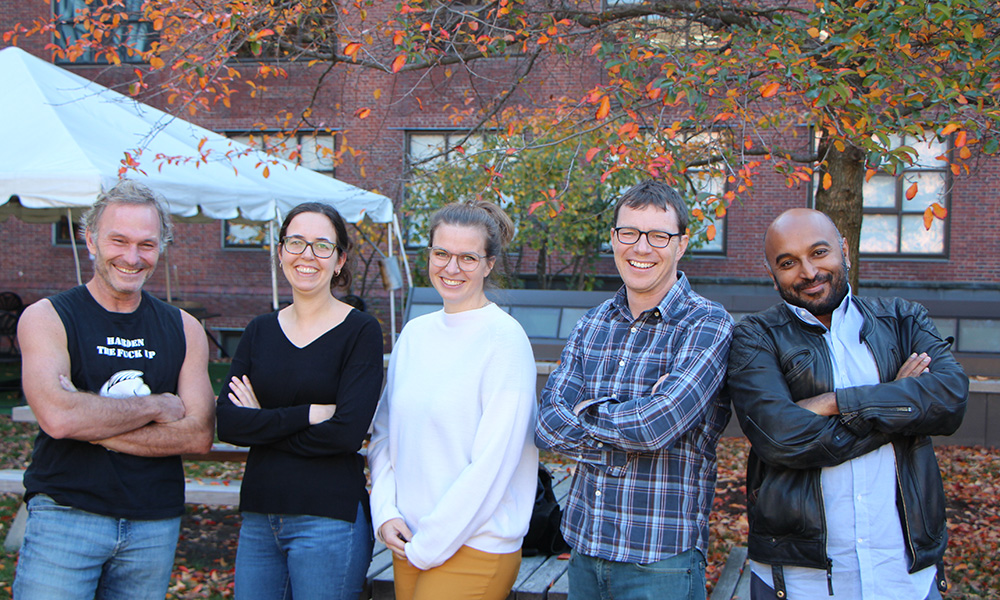The Burroughs Wellcome Fund (BWF) has chosen postdoc Luis Hernandez-Nunez of the Engert Lab as a recipient of its prestigious Career Awards at the Scientific Interface (CASI) grant.…
Tag: Florian Engert
Postdocs Shuonan He, Luis Hernandez-Nunez, Ding Liu, Brandon Logeman, and Isobel Ronai Awarded Fellowships
Several postdocs from MCB Labs have received prestigious fellowships that will support their ongoing research. To learn more about these postdocs and their fellowships, read on! Shuonan He…
How Fish Learn to Ignore Inconsequential Events [Engert Lab]
As a graduate student in the Gabbiani lab at Baylor College of Medicine, I studied how locust brains processed sensory information about an approaching predator and gave rise…
MCB Postdoc Developing New Field of Systems Neurocardiology
Luis Hernandez-Nunez, postdoc in the Engert lab in MCB, is at the forefront of a new field he calls Systems neurocardiology, a combination of control theory, systems neuroscience,…
Larval Zebrafish Avoid Obstacles When Escaping Predators [Engert Lab]
In a daily fight for survival, primitive nervous systems evolved the ability to escape from predators using reflexive reactions that save animals from being eaten. As nervous systems…
Task Force on Diversity, Inclusion, and Belonging Kicks Off New Semester with Engert Lab Open House
The MCB Community Task Force on Diversity, Inclusion, and Belonging (DIB) is leading off the new semester with an Engert Lab Open House on Friday, September 2 at…
Scents of Belonging: An Olfactory-oxytocin Pathway for the Social Regulation of Appetite and Avoidance [Engert- and Kunes Labs]
In a project jointly led by the Kunes and Engert laboratories, co-first authors Caroline Wee, Erin Song, and Maxim Nikitchenko used the larval zebrafish to take a deep…
Why Zebrafish Can’t Tickle Themselves
Any sensory experience in any animal species can originate from either an event in the outside world, such as a predator approaching, or from a stimulus generated by…
How Zebrafish Use “Simple Hacks” to Swim in a School
Schools of zebrafish move in complex patterns, but individual zebrafish use simple visual cues to decide where to swim, according to a new Nature Communications paper from the…
Postdoc Spotlight: Haleh Fotowat
Postdoc Haleh Fotowat of the Engert Lab has always split her time between scientific and creative pursuits. “I always grew up with a strong hobby in my life—I…











